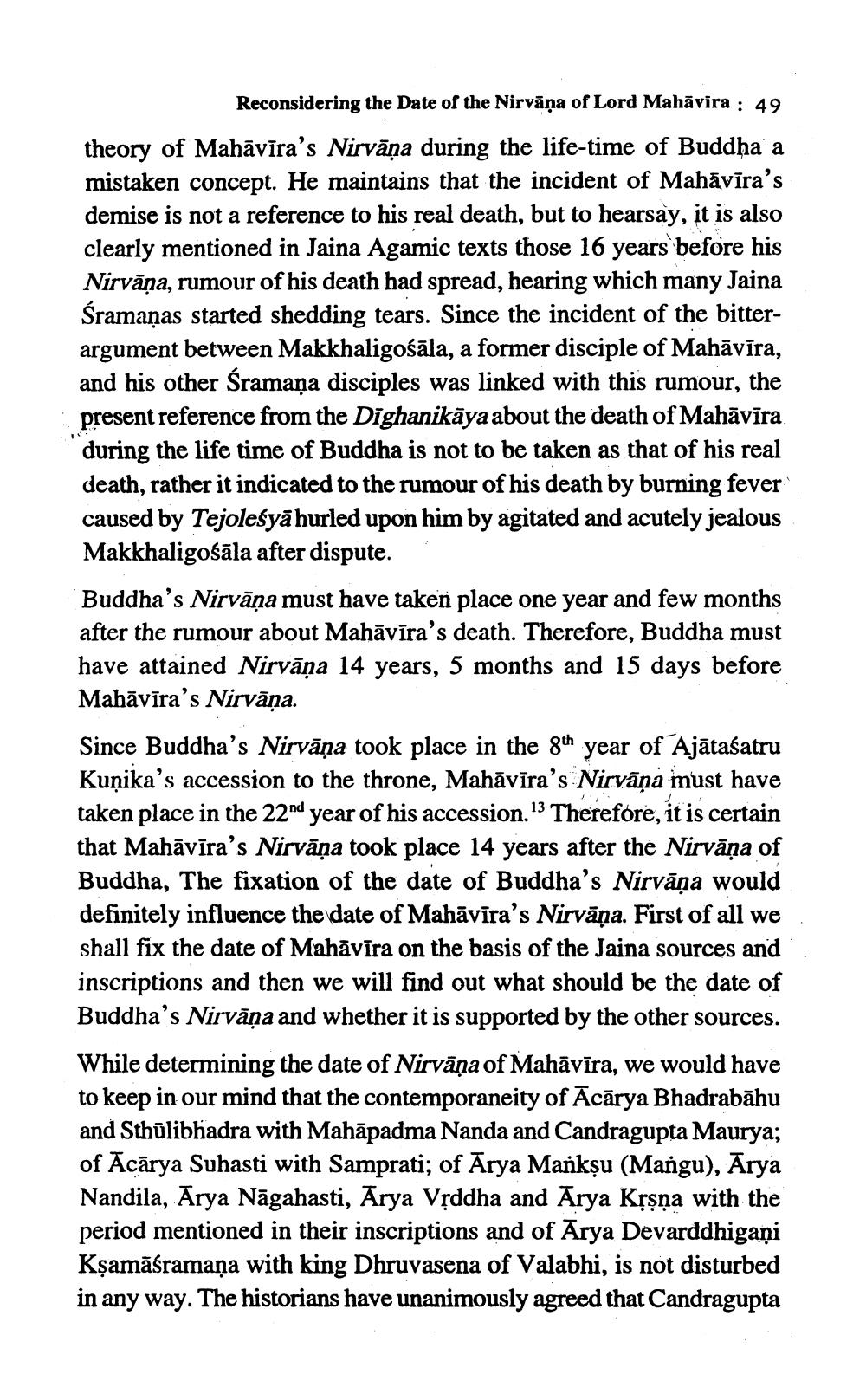________________
Reconsidering the Date of the Nirvāņa of Lord Mahāvira : 49 theory of Mahāvīra's Nirvāṇa during the life-time of Buddha a mistaken concept. He maintains that the incident of Mahāvīra's demise is not a reference to his real death, but to hearsay, it is also clearly mentioned in Jaina Agamic texts those 16 years before his Nirvāṇa, rumour of his death had spread, hearing which many Jaina Šramaņas started shedding tears. Since the incident of the bitterargument between Makkhaligośāla, a former disciple of Mahāvīra, and his other Śramaņa disciples was linked with this rumour, the present reference from the Dīghanikāya about the death of Mahāvīra during the life time of Buddha is not to be taken as that of his real death, rather it indicated to the rumour of his death by burning fever caused by Tejoleśyā hurled upon him by agitated and acutely jealous Makkhaligośāla after dispute. Buddha's Nirvāna must have taken place one year and few months after the rumour about Mahāvīra's death. Therefore, Buddha must have attained Nirvāņa 14 years, 5 months and 15 days before Mahāvīra's Nirvāņa. Since Buddha's Nirvāṇa took place in the 8th year of Ajātaśatru Kuņika's accession to the throne, Mahāvīra's Nirvāna must have taken place in the 22nd year of his accession.13 Therefore, it is certain that Mahāvīra's Nirvāṇa took place 14 years after the Nirvāņa of Buddha, The fixation of the date of Buddha's Nirvāṇa would definitely influence the date of Mahāvīra's Nirvāņa. First of all we shall fix the date of Mahāvīra on the basis of the Jaina sources and inscriptions and then we will find out what should be the date of Buddha's Nirvāṇa and whether it is supported by the other sources. While determining the date of Nirvāṇa of Mahāvīra, we would have to keep in our mind that the contemporaneity of Ācārya Bhadrabāhu and Sthūlibhadra with Mahāpadma Nanda and Candragupta Maurya; of Ācārya Suhasti with Samprati; of Ārya Markșu (Mangu), Arya Nandila, Arya Nāgahasti, Arya Vļddha and Arya Krşņa with the period mentioned in their inscriptions and of Arya Devarddhigani Kşamāśramaņa with king Dhruvasena of Valabhi, is not disturbed in any way. The historians have unanimously agreed that Candragupta




